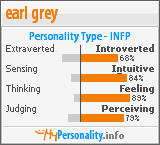According to a recent article from the New York Times we're hearing a little too much about the depressing lives of gays. Dr. Lisa Diamond weighs in on the media outcry over the recent suicides of LGBT youth.
Studies do suggest that severe emotional distress is somewhat more common among gay teenagers than straight ones. But Dr. Diamond and other experts say the effects of bullying and discrimination are often overplayed in the news media.
The article goes on to talk about how media and outreach campaigns such as the “It Gets Better” may actually do more harm than good by painting a bleak picture. The topic of gay teen suicides and substance abuse is in fact is something of a catalyst for angst.
“The negative message that gay teens get — just survive your adolescence and life will get better — is a disservice,” Dr. Savin-Williams said. “The message should be that your life can be good right now.
However, it does seem to gloss over the fact that anti-gay bullying affects more than just gay people. It acknowledges that atypical behaviour is often targeted by bullies rather than just confirmed orientation. While this behaviour may not target gay individuals, it is still often at its core homo- or transphobic.
While society may be making progress in some places with anti-bullying legislation and non-discrimination acts, the real important message to take away from the article is that suicide of gay youth is not simply a matter of stressors. Despite gay youth being targeted, absence of resilience factors such as support of friends and family, or positive affirmation of their sexual identity, are the real driving force.
In leiu of support of parents and peers, gay youth must turn to whichever sources they can, such as the “It Gets Better” project or the “We Give a Damn” campaign.


Well written. In one sense, it can be a bit "exceptionalist" to single out anti-gay bullying when really, all bullying needs to be addressed. I haven't had a chance to read that article just yet, so I don't know how it's written and what "spin" it takes, per se.
ReplyDelete